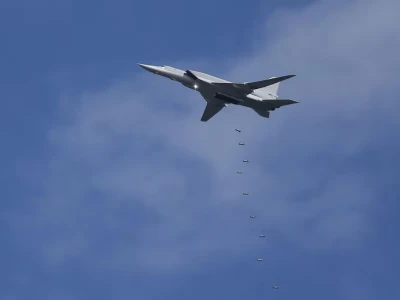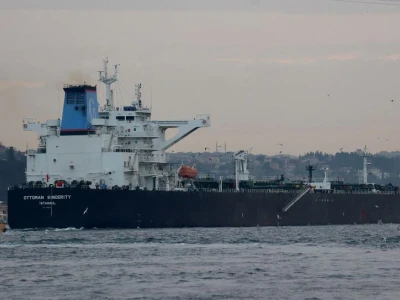
Russia signals aid to Syria out of Turkey likely to continue - diplomats
The Security Council initially authorized aid deliveries in 2014 into opposition-held areas of Syria from Iraq, Jordan and two points in Turkey.
UNITED NATIONS, Jan 4 (Reuters) - Russia has signaled to U.N. Security Council counterparts that it will likely allow humanitarian aid deliveries from Turkey to about 4 million people in northwestern Syria for six more months, diplomats said.
Authorization by the 15-member council is needed because Syrian authorities did not agree to the humanitarian operation, which has been delivering aid including food, medicine and shelter to opposition-controlled areas of Syria since 2014.
The Security Council is due to vote on extending the measure on Monday, a day before the current approval is to expire. To be adopted, a resolution needs nine votes in favor and no vetoes by Russia, China, Britain, France or the United States.
"We are still weighing pros and cons," Russia's deputy U.N. Ambassador Dmitry Polyanskiy told Reuters, adding that the implementation of the current Security Council resolution - adopted in July - was "far from our expectations."
He said that Russia was consulting with Syria and that the final decision would be made by Moscow on Monday.
Diplomats said Security Council members informally agreed last week to the text giving the operation six more months, which was drafted and negotiated by Ireland and Norway before they finished their two-year terms on the council on Dec. 31.
U.N. Secretary-General Antonio Guterres told the Security Council in a report last month that the aid access from Turkey was "a lifeline for millions of people" and the renewal of approval was critical, a "moral and humanitarian imperative."
Top U.N. officials, including U.N. aid chief Martin Griffiths, on Monday warned that ending the aid operation would be "catastrophic" for those who rely on it: "Most of them are women and children who need assistance just to survive at the peak of winter and amidst a serious cholera outbreak."
If Russia abstains in Monday's vote - allowing aid deliveries to continue - the council avoids the contention that has traditionally surrounded the issue. In July the council voted three times before the operation was extended - two days after the authorization had expired.
The Security Council initially authorized aid deliveries in 2014 into opposition-held areas of Syria from Iraq, Jordan and two points in Turkey. But Russia and China have whittled that down to just one Turkish border point.
Russia, which has backed Syrian President Bashar al-Assad in a civil war that began in 2011, argues that the aid operation violates Syria's sovereignty. It says more aid should be delivered from inside the country, raising opposition fears that food and other aid would fall under government control.




